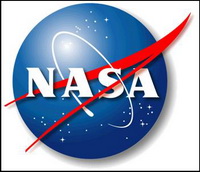Ares I-X to Be Launched Tuesday
NASA's new Ares I-X rocket is undergoing final preparations for its Tuesday's launch test. Launch time is scheduled for 8 AM EDT (1200 GMT). As of noon Monday it appeared that there was a 60% chance of showers and/or high altitude clouds interfering. However, the launch has an eight hour window of opportunity through 2000 GMT, and would require only 10 minutes of clear skies within that time to fly. Of interest to engineering types, both those who favor the new vehicle's design and its critics, will be to see whether the predicted linear 'pogo stick' oscillation will occur, and whether the dampening design built into it prevents damaging and possibly destructive shaking. Extensive coverage is being presented by Space.com; for NASA TV streaming video, schedules and downlink information, visit nasa.government," Slashdot reports.

It's the first step in NASA's effort to return astronauts to the moon.
The flight will last two minutes and cost $445 million. Parachutes will drop the first-stage booster into the Atlantic for recovery. The upper portion of the rocket — all fake parts — will fall uncontrolled into the ocean.
No matter what happens, NASA managers say they expect to learn a lot from the flight, even if it's for another type of rocket. The White House is re-evaluating the entire human spaceflight program, The Associated Press reports.
A blue-ribbon committee has said the Ares I is part of a NASA program that doesn't make sense given current and future budgets. The commission would like NASA to get out of the business of ferrying astronauts to low Earth orbit and let commercial companies handle that task. Now the Obama administration may try to kill the Ares I.
The space shuttle is old and unsafe and is supposed to be put out to pasture by the end of 2010. The United States will then find itself in the unfamiliar position of being incapable of launching humans into orbit. For five, six, seven years, American astronauts will probably have to buy a seat on a Russian spacecraft.
It's an awkward time for NASA. The most basic questions are on the table: Where to go? How to get there? And to what end?
There are billions of dollars at stake. The technological questions are complicated, The Washington Post reports.
Subscribe to Pravda.Ru Telegram channel, Facebook, RSS!





